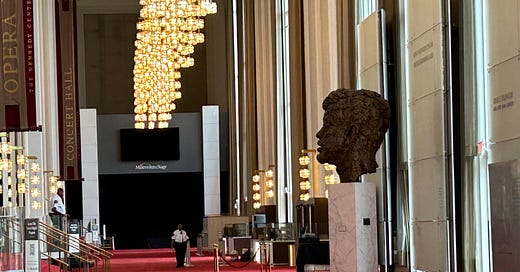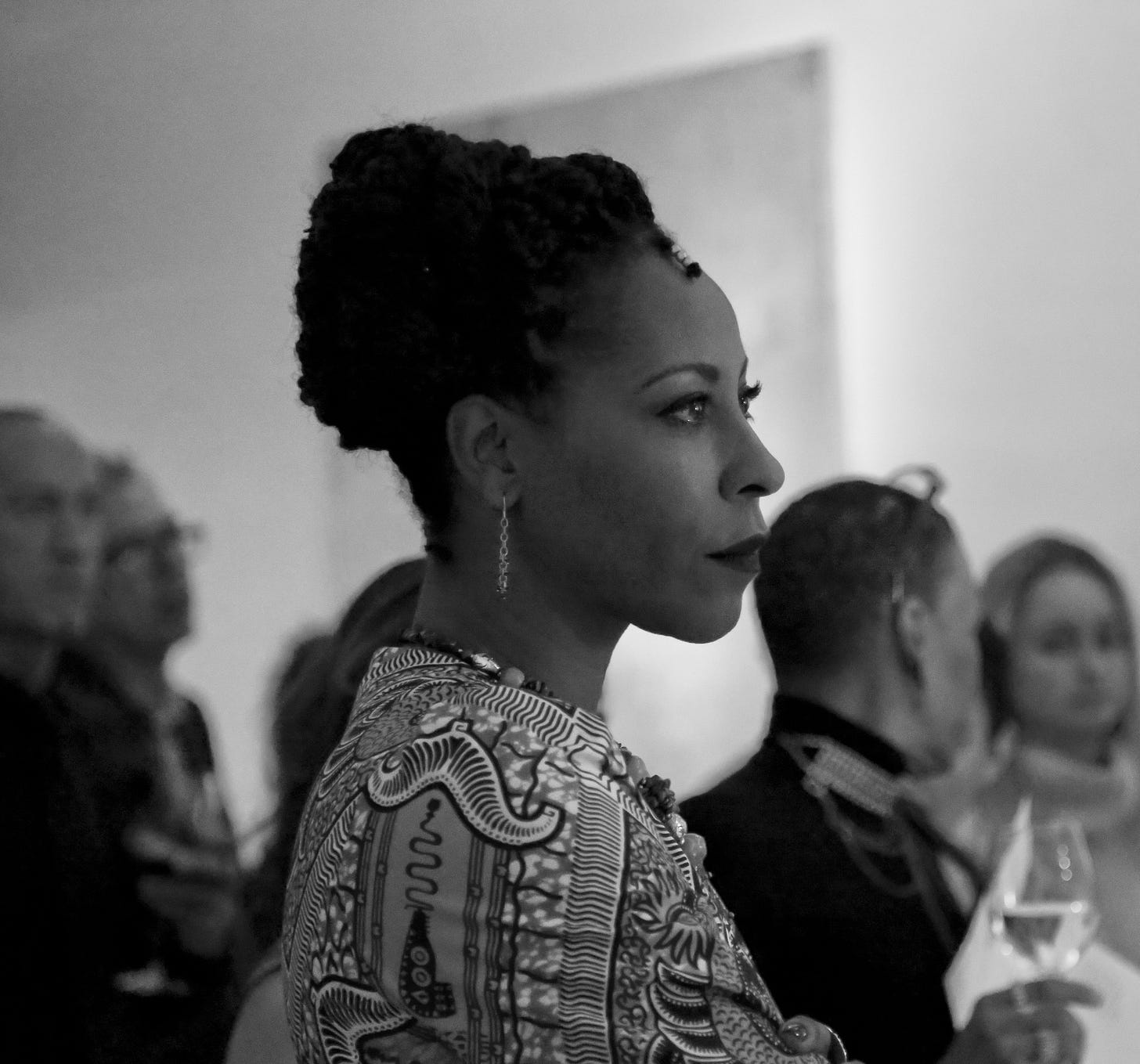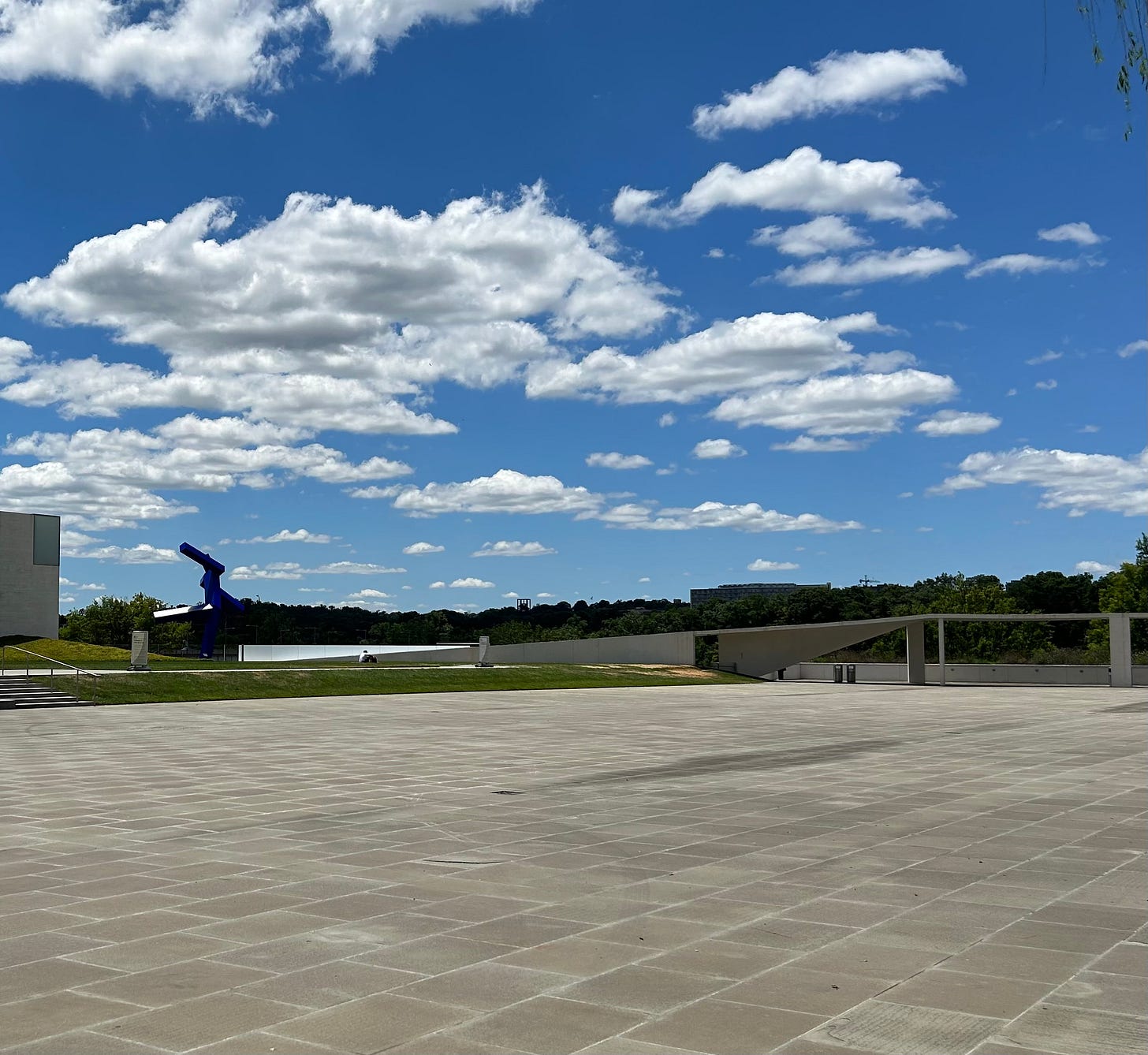I sat in the Kennedy Center’s Eisenhower Theater earlier this week, kvelling with pride. I felt like a mother duck watching her progeny jump into the water and churn their little webbed feet in quick circles as they swam away from her for the first time. Although, now that I think about that sentence, I imagine mama duck might be more filled with worry for her babies’ safety than bursting with joy at this first sign of their growth and independence. But I definitely felt maternal.
I had absolutely no reason for pride or joy on this particular evening, and the ‘ducklings’ were not my flesh and blood, but nonetheless my heart was full. I was watching Pacific Northwest Ballet’s Zsilas Michael Hughes and Ashton Edwards in a brand new duet created for them by PNB Associate Artistic Director Kiyon Ross. The ballet, called Quick Pleasure, set to music by Oliver Davis, is an energetic and joyful display of technical prowess and stage charisma. Watching the two dancers, all I could think was ‘these artists are from my hometown ballet company and they’re blowing the tiles off the Kennedy Center’s roof!’
Edwards and Hughes are young, in their early 20s, but they’re as poised as some of their more experienced colleagues, with charisma that almost physically yanks you into their orbits. Ross’ cleverly constructed duet is crafted to display their passion; the flames burn until the final note of Davis’ score fades. While each dancer has solo moments, the work is about the highs and lows of their relationship. Oh, and about joy, according to Ross.
Hughes and Edwards are close friends, and their offstage relationship influenced choreographer Ross, who crafted a three-section ballet that highlights both their personal chemistry and their growing technical and artistic strengths. Edwards’ pointe work is like maple syrup, sweet and fluid, while Hughes jumps and spins like a wind-up toy. They’re just a couple of years into their professional careers in PNB’s corps, although they are, as old Hollywood tropes would have it, heading to number one with a bullet.
Both of the dancers label themselves as nonbinary and use they/them pronouns. In Quick Pleasure, Edwards performs in pointe shoes and a floaty yellow dress, while Hughes wears golden-yellow pants and shirt and flat ballet slippers, their hair pulled up in a curly topknot. That’s quite a contrast to Edwards’ very close-cropped hair. Their appearances effectively blur traditional gender roles and elevate Ross’s sprightly choreography, which alternates between tender and taunting.
At one point Edwards extends a leg to the front, as if daring Hughes to follow suit, reminding me of Ethel Merman’s Annie Oakley and her shotgun, singing her superiority to her paramour. Anything you can do, I can do better.
Hughes easily meets that challenge.
They lift Edwards overhead and spin them around before setting Edwards on the stage. Edwards then raises a leg over Hughes’ arm and gently presses it down, resuming their non-verbal conversation. Both dancers individually leap into the air, gravity-less for a beat or two before ceding to the earth’s pull. Each extends long, long, LONG arms out to their sides, hands and fingers gently gesturing as if they were sea anemones communicating on a coral reef.
I’d been telling a roomful of writers that the two dancers would wow the audience, who rose to their feet when the duet ended. Edwards and Hughes vindicated my braggadocio. I have no role in their training, but we are all from Seattle, far from the East Coast spotlight. I’ve grown accustomed to the supposed superiority of dancers from New York, D.C., even Chicago and San Francisco, so when Seattle struts its stuff, I can’t help but kvell.
By the way, one other Seattle dance artist most definitely represented that night.
Master choreographer Donald Byrd’s exquisite work, From Other Suns, was created originally in 2022 for Theresa Ruth Howard’s Reframing the Narrative performance, an ambitious quest to elevate the presence of Black ballet artists. Howard reprised it for 2024’s Pathways to Performance, the second iteration of her ongoing project.
Howard is a human dynamo; a ballerina in her youth, she’s since been a dance writer, teacher and, along the way, made time to found MOB Ballet: Memoirs of Blacks in Ballet. She’s archiving the stories of Black dancers like Hughes and Edwards and making that archives accessible to the public.
She’s also devised a training program that aims to open more doors to representation by people of color—Black artists in particular—in her beloved ballet idiom. Pathways and a series of organizational workshops are part of her agenda.
She operates on what seems like a shoestring, but that doesn’t quell her determination to dismantle systemic racism brick by brick, even if she has to pull out each brick with her own hands. I was at the Kennedy Center thanks to Howard’s decision to bring in a group of writers to talk about how we document the dance ecosystem. All part of her larger goal.
Howard and MOB Ballet are a story for another time, one I’ve told parts of for other outlets (my podcast and Crosscut, a Seattle-based digital news and culture magazine). Howard has been working with Pacific Northwest Ballet and that led her to meet Edwards, Hughes and Ross and perhaps to this iteration of Pathways to Performance.
The show culminated with choreographer Jennifer Archibald’s touching Home, a ballet for the 13 dancers who made up the Pathways’ ensemble, including Zsilas Hughes and Ashton Edwards. Dance makers Portia Adams and Meredith Rainey also created new works for this show, which will repeat July 10-11 at Jacob’s Pillow, in western Massachusetts.
Theresa Ruth Howard may be a dreamer, but she’s definitely not the only one. Her band of fellow dreamers is growing and if you’ve met this tireless woman, you know she won’t stop until she recruits all of us to the cause of elevating Black artists, despite the barriers that systemic racism has set up against them.
Someday a metaphorical pile of rocks may be the only evidence of what once comprised the barriers to a truly equitable dance ecosystem. Ashton Edwards, Zsilas Michael Hughes and the entire Pathways to Performance artistic cohort gave us something to aspire to.








Very glad to hear this report, and hoping that we'll see Ross' duet for Edwards and Hughes on this side of the continent soon!
sandi kurtz